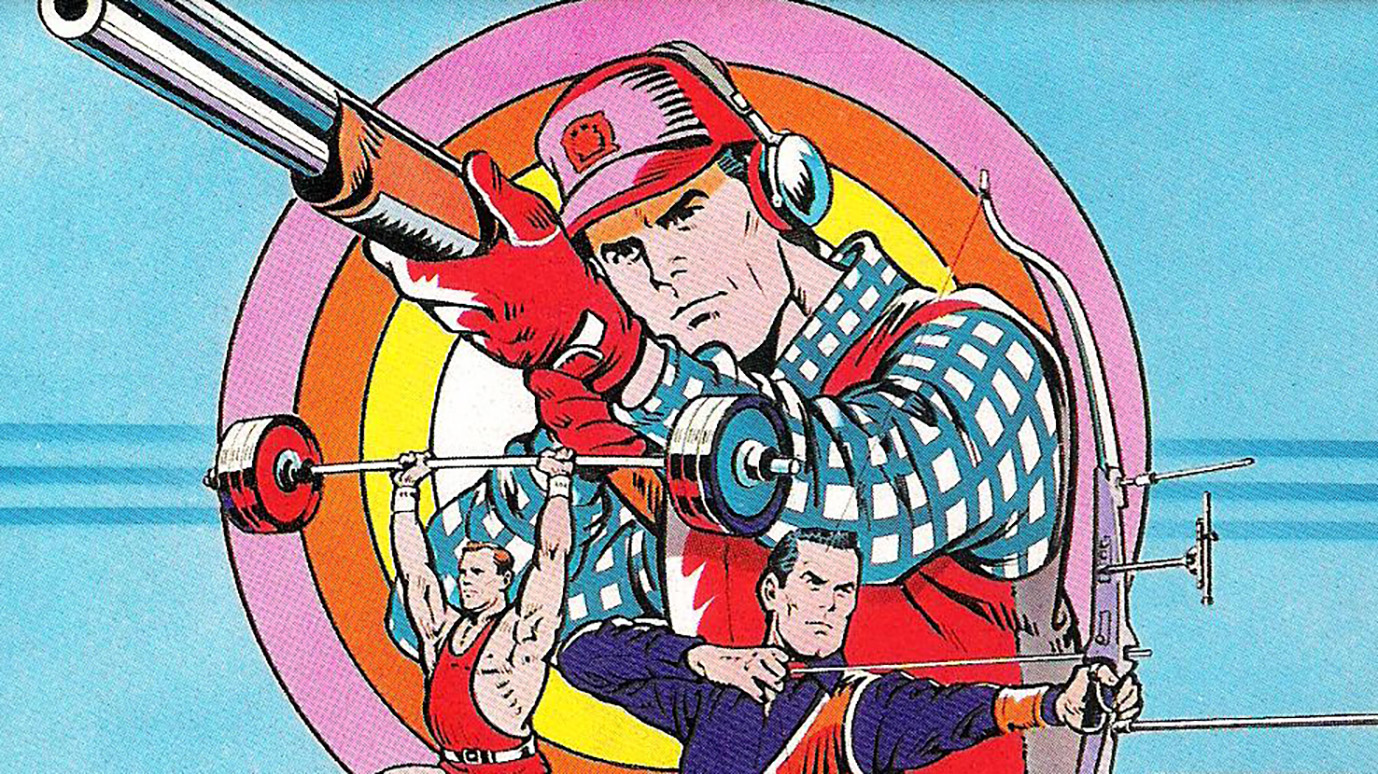
Pasokon Retro is our regular look back at the early years of Japanese PC gaming, encompassing everything from specialist '80s computers to the happy days of Windows XP.
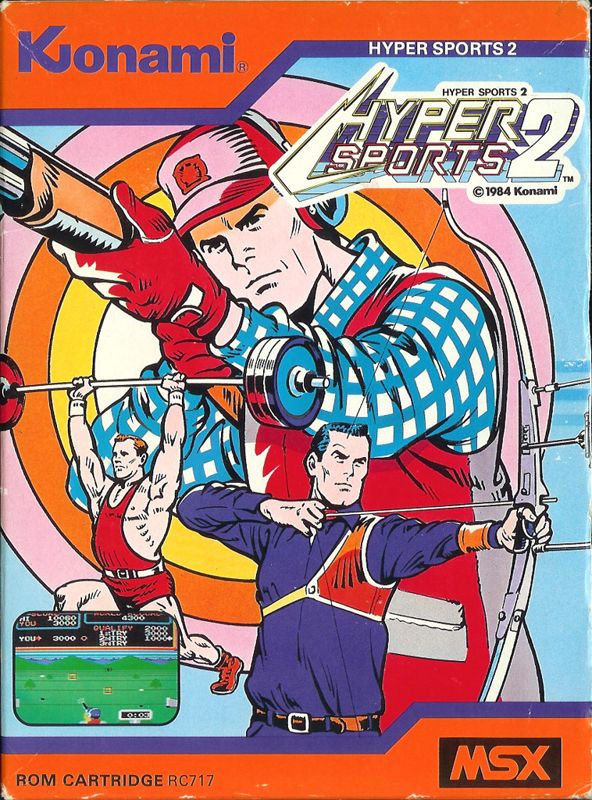
When the Olympics were on TV, showing off countless extraordinary feats of human athleticism, and the warm summer sun was shining over grassy playing fields up and down the country, it was almost as if the universe itself was trying to encourage me to play some sports. Good luck with that; I have a body built for typing and the pallid skin of a blind cave fish whose entire species hasn't seen light for millennia. But in the spirit of the season, I was prepared to meet reality halfway and do the Olympics, or at least some nascent digital version of them, my way, with Konami's '84-'85 Hyper Sports trilogy of MSX PC games. If I can use games to impersonate a tough mech pilot, a powerful samurai, or pretend I'm a vampire elf's walking juice box, then surely acting like I could bounce off a springboard at high speed without twisting an ankle at a medically terrifying angle wouldn't be too much of a stretch.
I wasn't expecting much more from the games beyond half an hour's worth of fun, if I'm honest. Sports games, especially ones as old as these, are best known for being entertainingly shallow button-destroying collections of middling minigames and not much else. Waggle a joystick to sprint. Waggle the joystick to swim. Mash the keyboard to jump really high. Mash the keyboard to jump really high, but this time the background's blue instead of green. Not exactly gold medal-winning experiences.
Japan's MSX wasn't considered an especially high powered computer even in the mid-1980s, so authentically capturing the complexity of gymnastics movement, the fine skill of archery, or the frenzied brushing of curling, was surely out of the question. Professional sports are highly skilled events where years of intense training, mental focus, and physical effort combine in a few intense, life-changing seconds into something new and wonderful. The MSX thought being able to display 16 colours at once (and at most) was all anyone would need, and having a dedicated digital controller to play games with was a nice optional extra.
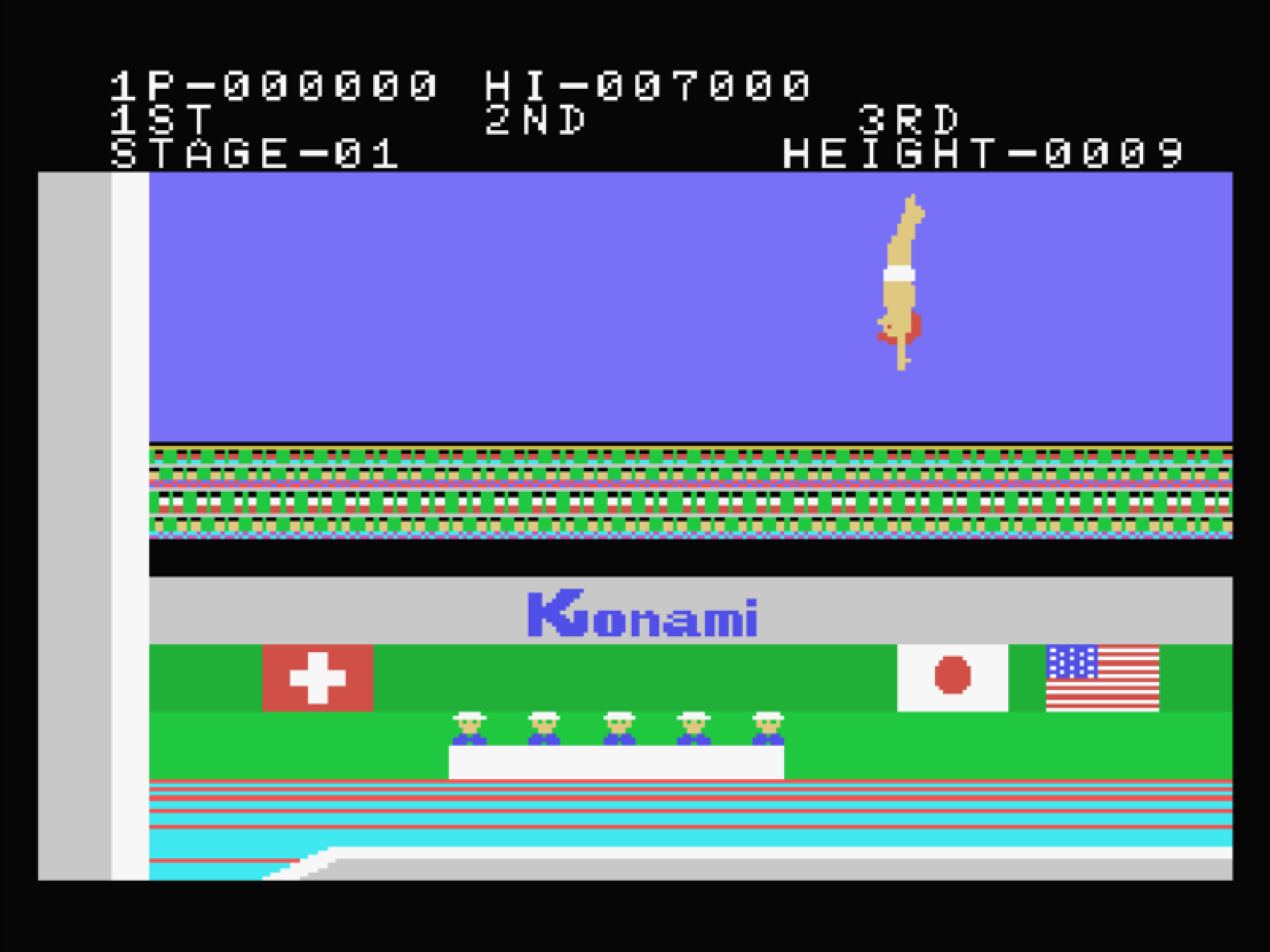
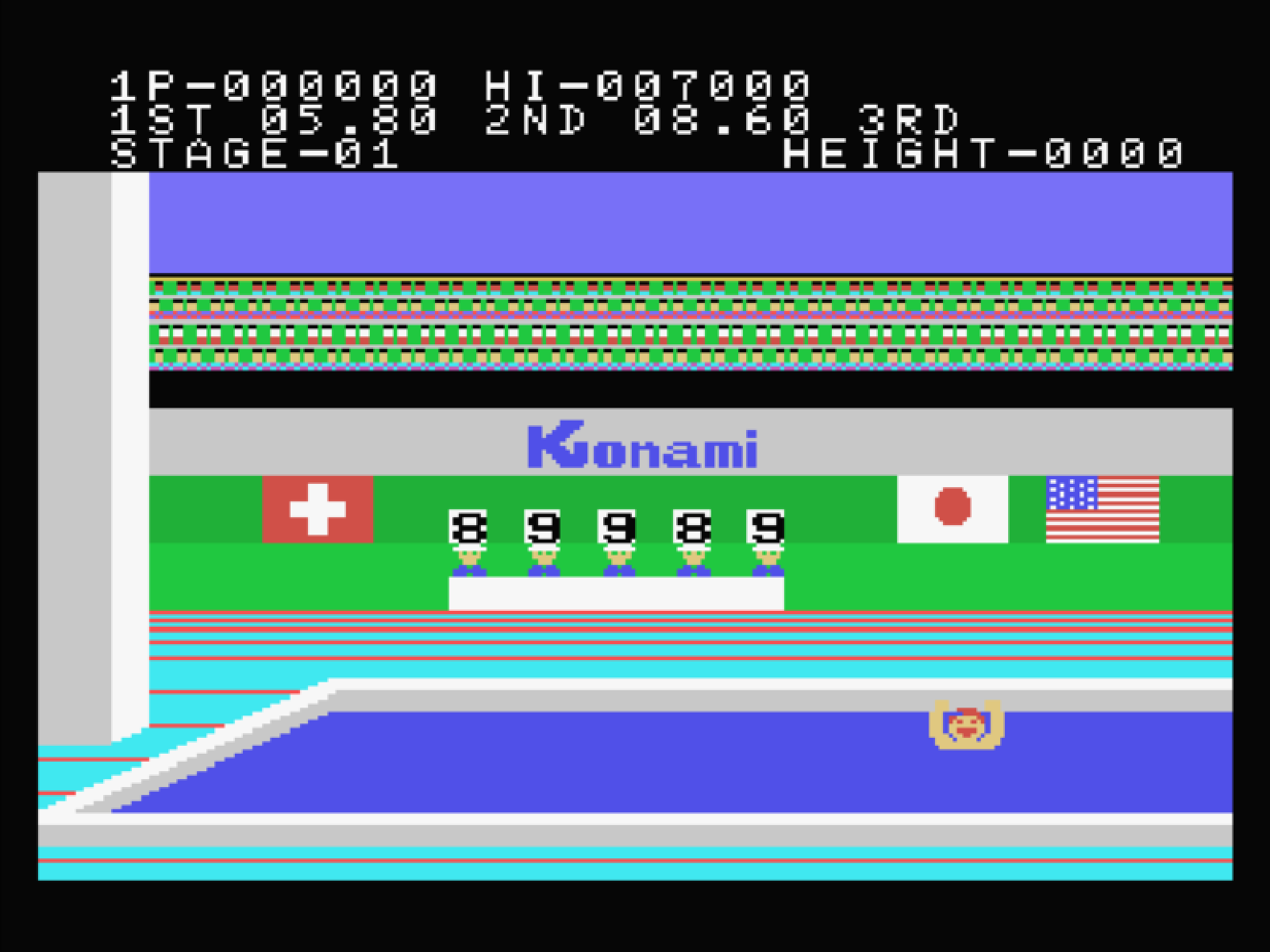
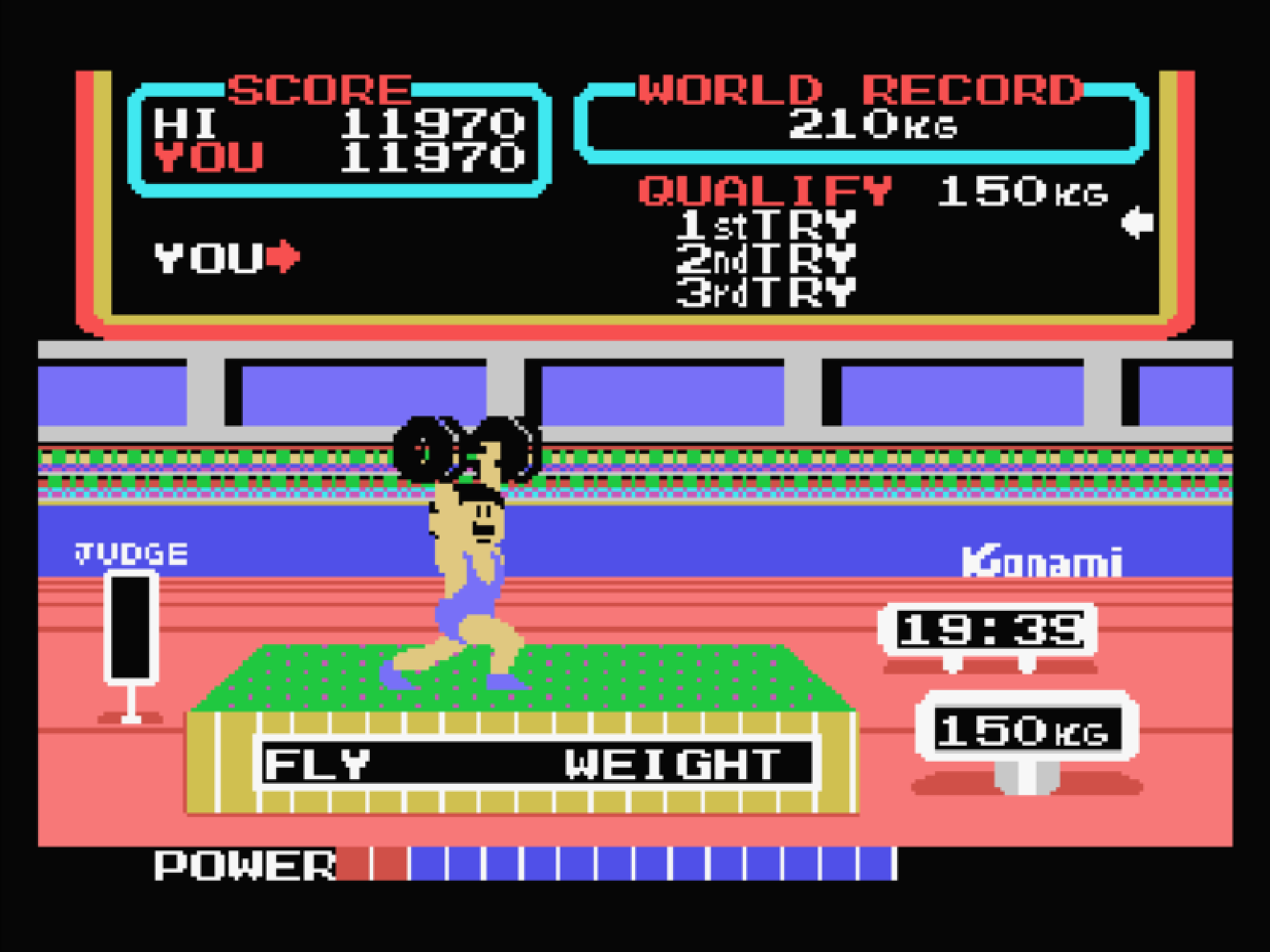
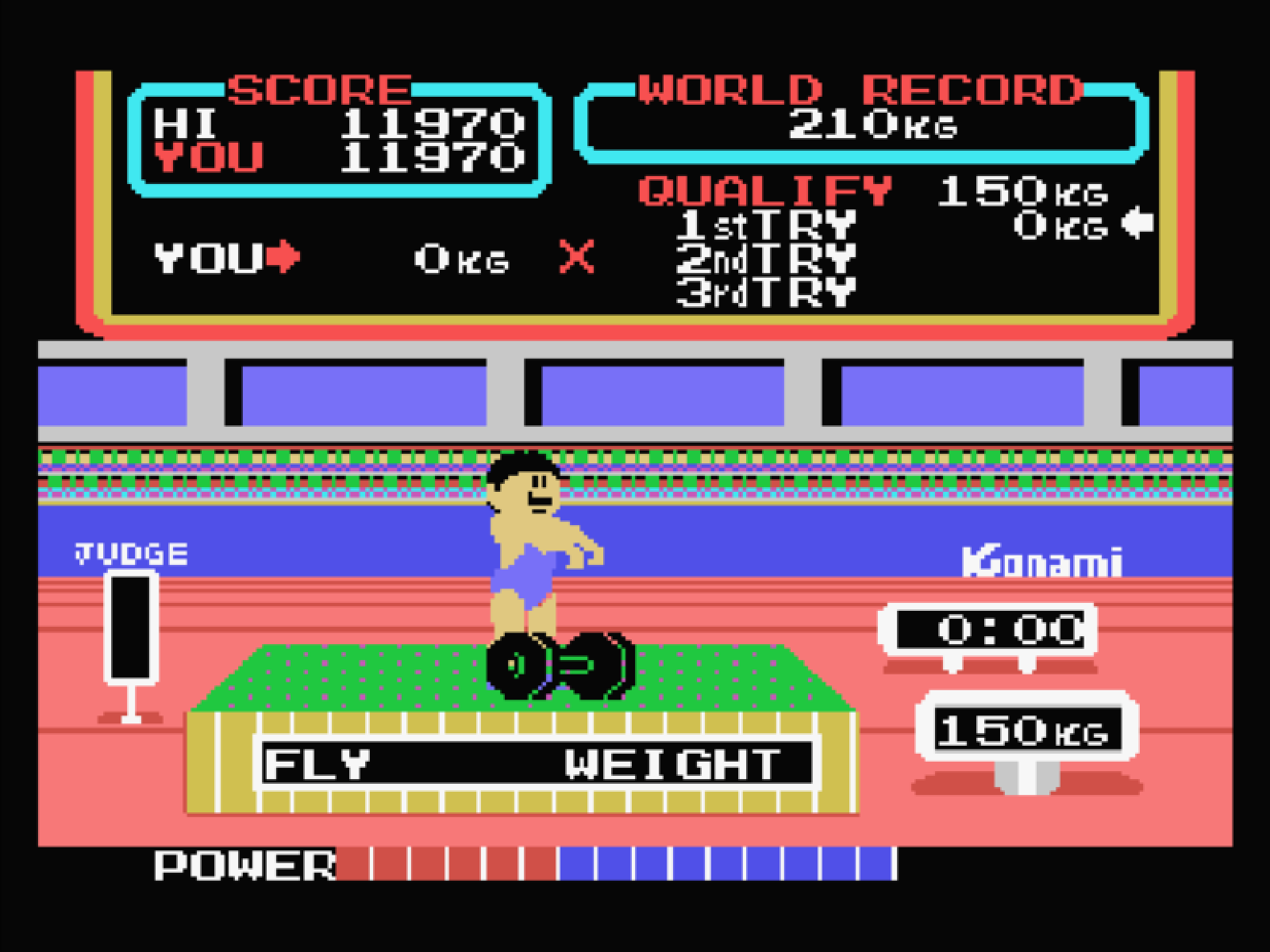
So how was I suddenly obsessed with Hyper Sports 1's opening diving event, determined to perfect my double somersault plunge into the water and finally prove the one judge who dared to give me a progress-ruining 6/10 wrong?
OK—I'll admit that part of the reason for that was down to all three games insisting I play through their handfuls of events in a strictly linear order, with no skips or continues. Absolutely no weight lifting for me unless I learned how to clear skeet shooting first, no long horse or bouncy trampoline fun without nailing this dive. No matter the sport the pass requirements are always high, demanding true understanding and mastery of each event before allowing me to move on to the next one.
But mostly I kept playing because I was having a lot of fun. Even this simple starter event demanded a lot from me, and I wanted to get it right. The initial leap off the board was crucial to my success, my nameless athlete in tight white swimming trunks performing three jumps before leaping into the water. If I could hit the spacebar at just the right time, every time, they'd bounce higher and higher into the air, which would give me more time for the next part—the somersaults. The more of those I could squeeze in, the higher the score I'd receive, and to do that I needed to get a lot of air and then hammer the right cursor key on my keyboard fast enough to make me wonder if there was still someone at Konami I could bill for wear and tear.
Mindless tapping wasn't enough, either, as belly-flopping into the water would tank my score. So I needed to spin as much as possible, but never so much I didn't leave myself time to hit the spacebar again just before the end, straightening my diver out and ensuring a graceful, and hopefully high-scoring, finish to my aquatic athletics.
No matter what I was doing, from the triple jump to the trampoline, I was enthralled, over and over again, by a sports game two or three times older than most of the Paris 2024 Games' living athletes. The second game's archery competition was another favourite, testing my ability to time my actions in two different ways at the same time.
At the most basic level I was firing an arrow at a slowly moving target, and I needed to take the randomised wind speed into account. But the length of time I held the fire button also mattered, as this determined the angle of the shot. If I held on just a fraction too long, or not quite long enough, then the arrow could miss the points-rich centre of the board, or maybe even miss the board entirely. There was no game-y magic formula to getting it artificially right every time. I just had to be quick, consistent, and put in the practice.
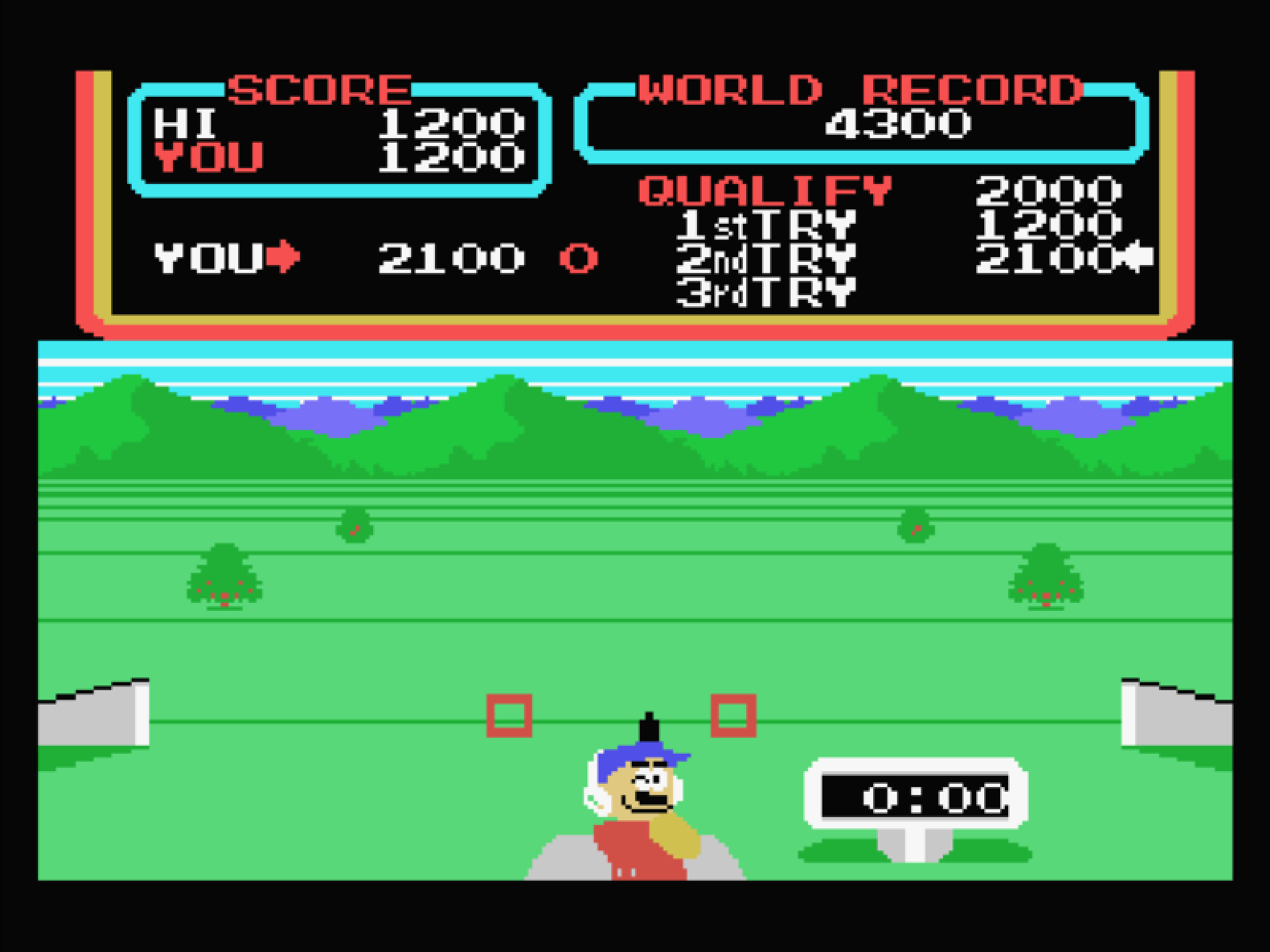
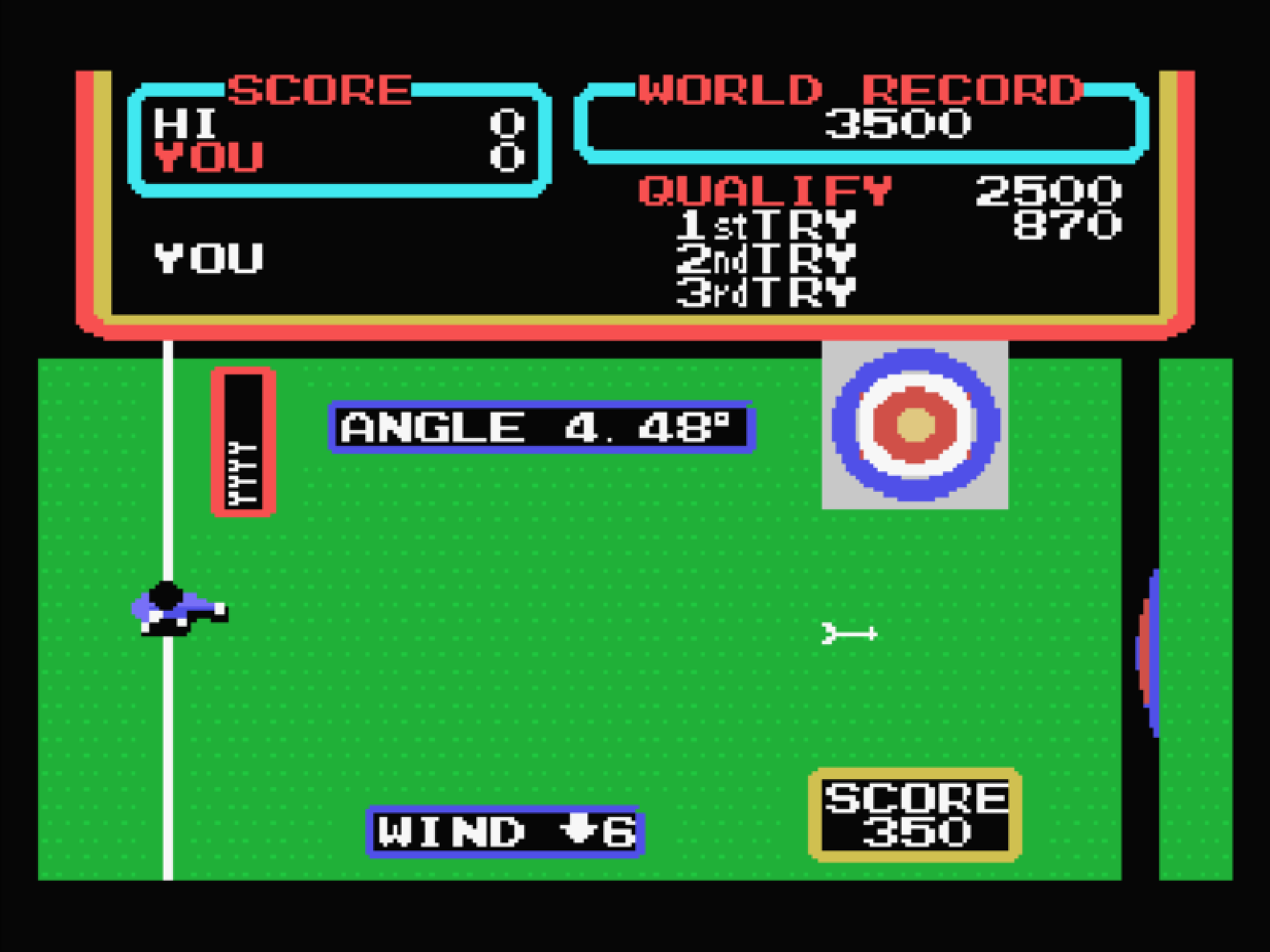
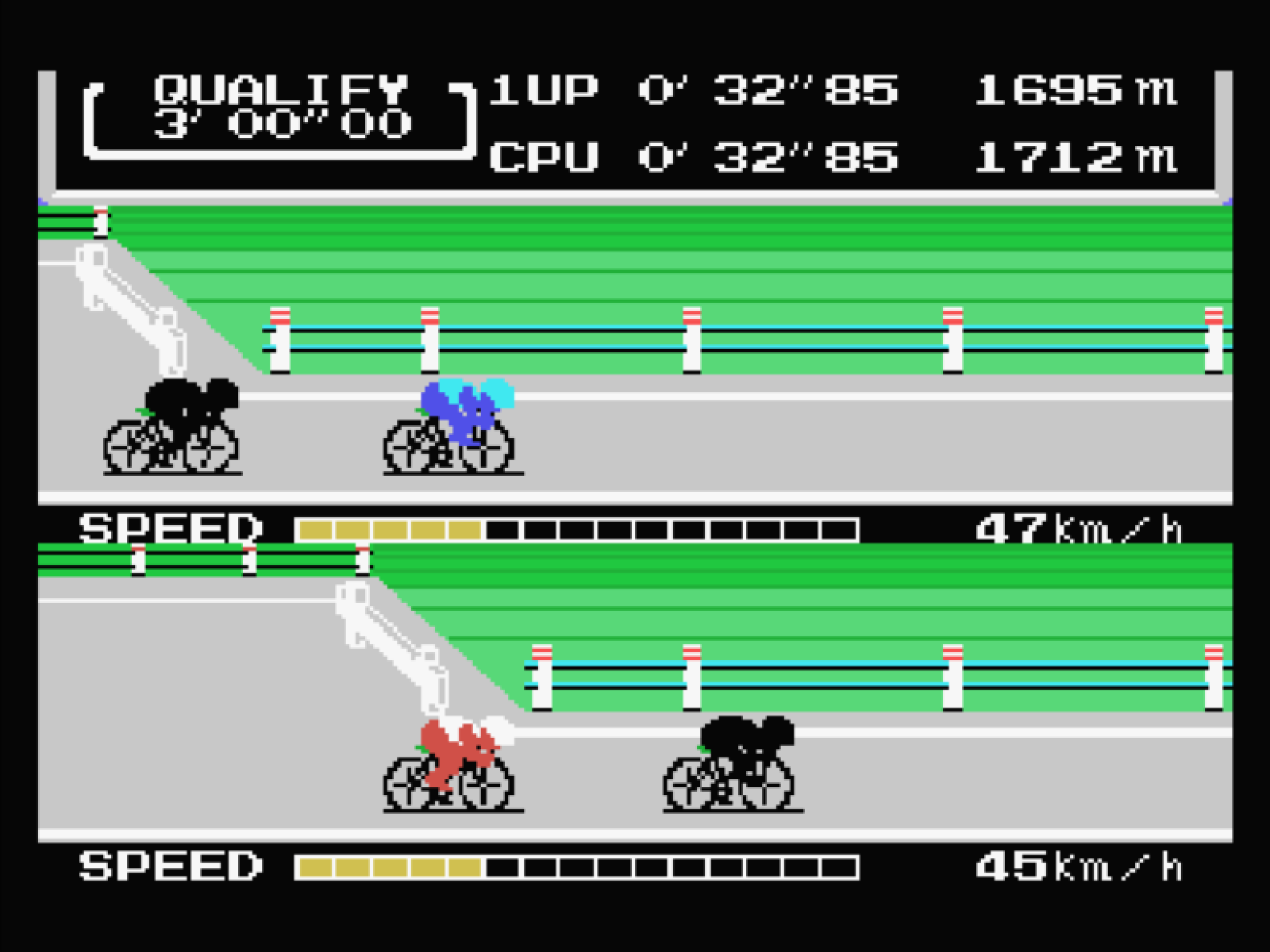
Of course nothing found in any of these games is an accurate representation of the real events—executing sick triple somersaults 30 feet up in the air is sadly not achievable by a complete amateur in seconds just by jabbing a single cursor key at switch-breaking speeds, and professional cycling probably involves a bit more thought than going really fast all the time and making sure the other person can't get in front of me. But in the moment this trio of tiny games from decades ago feel close enough to the real thing for the lines between the two to become just a little blurred. My reflexes, physical stamina, and knowledge of the nuances of each discipline are tested, and I won't get anywhere unless I put in the effort.
And just like real sports, I want to put in that effort, even though it's hard and the path to perfection is long. I'm better at these events than I was yesterday, but not as good as I'll be tomorrow. My keyboard isn't going to last until the next Olympics, but my enthusiasm for these games definitely will.







